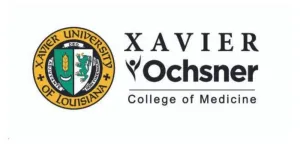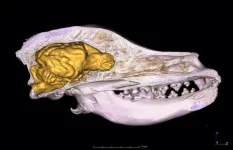(Press-News.org)
Boston – Vorasidenib has been approved by the U.S. Food and Drug Administration (FDA) for patients with Grade 2 gliomas with IDH1 or IDH2 mutations.
Based on evidence from the INDIGO clinical trial, a global phase 3, double-blinded, randomized clinical trial, vorasidenib more than doubled progression-free survival and delayed the need for treatment with radiation and chemotherapy for patients with Grade 2 IDH-mutant glioma after surgery to remove the tumor. INDIGO was the first phase 3 clinical trial of a molecularly targeted therapy for IDH-mutant glioma.
“The INDIGO trial shows that IDH inhibitors can work in low grade gliomas with the IDH mutation,” says Patrick Y. Wen, MD, Director of the Center for Neuro-Oncology at Dana-Farber Cancer Institute and one of the trial’s three study chairs. “The last drug that was approved for low grade gliomas was in 1999, so this will be the first new drug in a long time.”
Grade 2 gliomas are incurable brain tumors. IDH mutations are found in the vast majority of lower grade gliomas.
A key benefit of vorasidenib therapy is that it can delay the need for treatment with radiation and chemotherapy. Current treatment involves surgery followed by radiation and chemotherapy. Radiation and chemotherapy are effective treatments, but after many years of treatment, patients will experience signs of cognitive dysfunction normally seen in much older people.
“These patients are often young, in their 30s or 40s. But ten to twenty years later, even if they are doing well from the point of their tumor, they often show signs of dementia after radiation and chemotherapy,” says Wen. “If this medicine can delay the start of these treatments, it would delay cognitive dysfunction in patients and preserve their quality of life.”
The INDIGO trial enrolled 331 patients with Grade 2 IDH-mutated gliomas who had undergone surgery to remove the tumor. Patients who enrolled did not immediately need radiation and chemotherapy and instead were in a watch-and-wait period. During this time, they were randomized to take either vorasidenib or placebo.
Patients taking vorasidenib had a median of 27.7 months progression-free survival compared to 11.1 months for patients taking a placebo. The time to next treatment for patients taking the placebo was 17.8 months. For those taking vorasidenib, a median had not been determined at the most recent analysis because only 11.3% of these patients had so far progressed to the next treatment. The drug also had a manageable safety profile.
“The trial found no difference in quality of life compared with placebo,” says Wen. “Tolerability is important because this is a drug that we expect people to be on for many years.”
The approval opens the door to several new possibilities for patients. For instance, Wen has an ongoing trial investigating vorasidenib with immunotherapy and there are planned trials combining vorasidenib with standard radiotherapy and chemotherapy.
About Dana-Farber Cancer Institute
Dana-Farber Cancer Institute is one of the world’s leading centers of cancer research and treatment. Dana-Farber’s mission is to reduce the burden of cancer through scientific inquiry, clinical care, education, community engagement, and advocacy. We provide the latest treatments in cancer for adults through Dana-Farber Brigham Cancer Center and for children through Dana-Farber/Boston Children’s Cancer and Blood Disorders Center. Dana-Farber is the only hospital nationwide with a top 5 U.S. News & World Report Best Cancer Hospital ranking in both adult and pediatric care.
As a global leader in oncology, Dana-Farber is dedicated to a unique and equal balance between cancer research and care, translating the results of discovery into new treatments for patients locally and around the world, offering more than 1,100 clinical trials.
END
It may now be time to ban artificial stone—a firm favourite for kitchen worktops in the UK— to ward off the incurable lung disease caused by its manufacturing and fitting, say a team of doctors in the journal Thorax after treating the first 8 cases of artificial stone silicosis reported in the UK.
Silicosis is caused by breathing in crystalline silica dust, and millions of people around the world are at risk of developing it as a result of their jobs in mining, quarrying, stone-cutting ...
The UK and the European Union should follow Australia’s lead and ban the kitchen worktop favourite and cause of irreversible and rapidly progressive lung disease—artificial stone siliicosis—urge researchers in an editorial, published online in Occupational & Environmental Medicine.
And until a ban comes into force, all possible control measures should be legally enforced to minimise workers’ exposure to the harmful crystalline silica dust generated during its manufacture and fitting, insist the authors.
Artificial stone (also known as engineered stone) is widely used for surfaces ...
Renewed efforts to reduce child poverty in England between now and 2033, such as removing the 2-child limit on child benefit, would significantly boost several aspects of child health and narrow health inequalities across the country, finds research published online in the Journal of Epidemiology & Community Health.
Tackling it would substantially cut the number of infant deaths and children in care, as well as rates of childhood nutritional anaemia and emergency admissions, with the most deprived regions, especially ...
The International Olympic Committee (IOC) should cut its ties with Coca Cola in the best interests of athletes, spectators, and the planet, urge Trish Cotter and Sandra Mullin of the international public health organisation, Vital Strategies, in an editorial to be published shortly in the open access journal BMJ Global Health.*
The company’s sponsorship forces athletes to implicitly endorse unhealthy sugary drinks and provides Coca Cola with elite access to political and corporate leaders to exert its influence, insist the authors.
Coca Cola has sponsored the Olympic Games for almost 100 years, they note. And there’s ...
Today, Bloomberg Philanthropies announced a gift of $5 million in seed funding to support the creation of the Xavier Ochsner College of Medicine (XOCOM), a newly established medical school in New Orleans founded by Xavier University of Louisiana and Ochsner Health.
Earlier this year, Xavier University of Louisiana, a historically Black college and university (HBCU) with a strong track record of sending graduates into the medical field, and Ochsner Health, the Gulf South’s leading not-for-profit health system with a long academic ...
A recent study by László Zsolt Garamszegi from the Institute of Ecology and Botany, Centre for Ecological Research, Hungary, and Niclas Kolm from the Department of Zoology, Stockholm University, Sweden, challenges the long-held notion that domestication is the primary driver of reduced brain size in domesticated animals, specifically dogs. The study employs a phylogenetic comparative method to analyze whether the domesticated dog (Canis familiaris) exhibits a uniquely small brain relative to its body size compared to other canid species.
The prevailing belief has been that domestication leads to a significant ...
*Note this is an early release from the Annual Meeting of the European Association of the Study of Diabetes (EASD 2024, Madrid, 9-13 September). Please credit the meeting if using this material*
Women who develop gestational diabetes are not more likely to go on to be diagnosed with breast cancer, according to a study of almost three-quarters of a million mothers to be presented at this year’s Annual Meeting of the European Association for the Study of Diabetes (EASD) (Madrid, 9-13 September).
Gestational diabetes, a type of diabetes that can develop during ...
New studies emphasize the vital role of fruits, vegetables, and their co-products in boosting human health and life expectancy. Packed with minerals, vitamins, and dietary fiber, these foods help prevent chronic diseases. Antioxidants in fruits and vegetables, such as vitamins and carotenoids, combat harmful free radicals.
To get more information and to contribute to the research, visit: bit.ly/46zTKFX
Combining various fruits like oranges, apples, grapes, and blueberries enhances antioxidant effects. Diets ...
A new University of Vermont study published today in Nature: Scientific Reports examines the social and psychological aspects of farmers’ decisions about whether or not to implement biosecurity measures on pig farms. This is the first study to look at human behavior in biosecurity adoption among swine producers.
Through survey data and simulations, the scientists found that it is largely farmers’ attitudes, which have the biggest impact on farmers’ decision-making strategies regarding implementing farm biosecurity. Farmer’s attitudes ...
Dr. Eric Ravussin of Pennington Biomedical Research Center in Baton Rouge was one of 38 scientists from five continents to present the first international consensus on fasting terminology and key definitions. Published in Cell Metabolism, the recent study reflects the increasing popularity of diets tied to fasting and a significant increase in scientific studies of fasting. While the application of fasting is rapidly growing, there was previously no globally established terminology.
The panel was the first to bring ...



